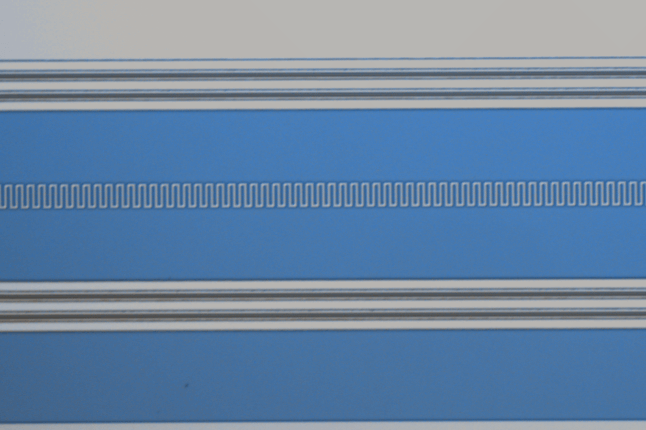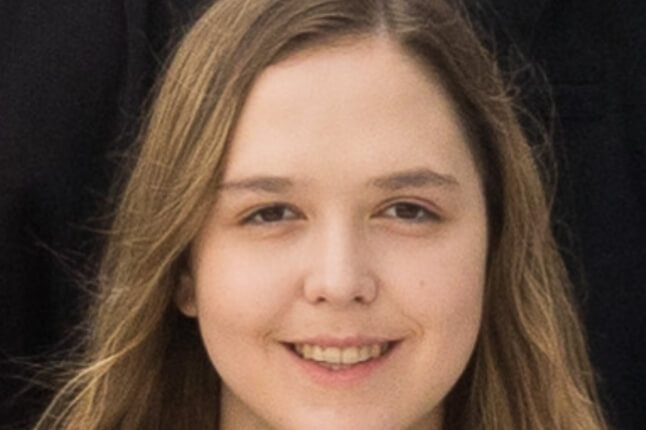News
Sadasivan Shankar, Program Leader for Materials Design at Intel Corp., has been appointed a Distinguished Scientist in Residence at Harvard SEAS. (Photo by Eliza Grinnell, SEAS Communications.)
Cambridge, Mass. - August 1, 2013 - A leader in computational materials design will bring an industry perspective to the Harvard School of Engineering and Applied Sciences (SEAS) this year. Sadasivan Shankar will be the first Distinguished Scientist in Residence at the Institute for Applied Computational Science (IACS) at SEAS from August through December. Shankar will join the institute to teach a graduate-level fall course, Computational Design of Materials (AC 275). During his residence, he will also give invited lectures, advise students on their projects, and exchange ideas about in silico materials design with Harvard researchers.
Established in 2010, IACS provides graduate training in applied computational science and organizes other activities to develop and sustain the community of Harvard faculty and students using computational approaches across all disciplines. This year, the first cohort of SEAS students begin a new Master of Science program in Computational Science and Engineering. Emphasizing the application of fundamental knowledge across the frontiers of natural and social sciences, the humanities, and engineering, the program prepares leaders for a future in which large-scale computation and advanced mathematical modeling will propel innovation and discovery in the 21st century.
Shankar is Senior Principal Engineer and led materials design in the Design and Technology Group within the Intel Technology and Manufacturing Organization. He will spend the semester at SEAS under a sabbatical arrangement sponsored by Intel.
“We are deeply grateful to Intel for being the first industrial partner to loan IACS an eminent researcher who will bring leading-edge technology and concepts into the classroom,” said Efthimios Kaxiras, Director of IACS. “At IACS we emphasize the practical application of theory, computing, and data to real-world problems. In his work at Intel and in the materials science research community, Sadas Shankar epitomizes this approach. He has pioneered close interactions between industry and academic labs, tirelessly promoting the importance of scientific research in advancing technological innovation. He has provided strong support and visionary leadership for computational materials design through national projects such as the President’s new Materials Genome Initiative. We look forward with excitement to offering a unique experience for our students and the Harvard research community.”
Shankar's team at Intel works with experimentalists to enable the computer-aided design of materials that address specific nanotechnology requirements. His team has contributed to more than seven generations of technology development at Intel.
The co-inventor in more than 23 patent filings covering new materials, devices, processes, and algorithms, Shankar is a coauthor of more than 100 external publications and presentations. In addition to his role at Intel, he is involved in several industrial and national research initiatives and has served on panels for the National Institute of Standards and Technology, the National Academies, the National Science Foundation, and the Department of Energy. The open platform effort that he has been involved in is part of the Materials Genome Initiative.
Shankar, who earned his Ph.D. in chemical engineering and materials science at the University of Minnesota, actively collaborates with universities and national labs on computational materials and metrology, nano-engineered materials, and system-level understanding of emerging information processing architectures. He is a member of the IACS Advisory Board and co-organized with Kaxiras the January 2013 Symposium on the Future of Computation in Science and Engineering, “Computing @ Exascale,” hosted by SEAS and co-sponsored by Intel.
Intel officials said they look forward to the partnership with Harvard expressed in Shankar’s sabbatical. “Supercomputing, big data and scientific achievement go hand-in-hand,” Intel Senior Fellow Steve Pawlowski said, “and so it is my pleasure to see Dr. Sadasivan Shankar so generously give his sabbatical time to Harvard School of Engineering and Applied Sciences to share his innovative ideas and methods on computational material design.” Pawlowski is also Chief Technology Officer for Intel’s Data Center and Connected Systems Group.
Mark Bohr, also an Intel Senior Fellow, added that the new graduate program “opens up a unique opportunity to bridge the theory and computing to practical applications needed by the industry. Materials engineering is vital to the semiconductor industry, and the use of simulation tools is a necessary predecessor and complement to experimental work.”
Assisting Shankar with the fall course will be Brad Malone, Lecturer in Computational Science. Details are available at the course website, http://projects.iq.harvard.edu/ac275.
PRESS CONTACT
Paul Karoff, (617) 496-0450
Topics: Materials, Computer Science, Applied Mathematics
Cutting-edge science delivered direct to your inbox.
Join the Harvard SEAS mailing list.
Scientist Profiles
Efthimios Kaxiras
John Hasbrouck Van Vleck Professor of Pure and Applied Physics




